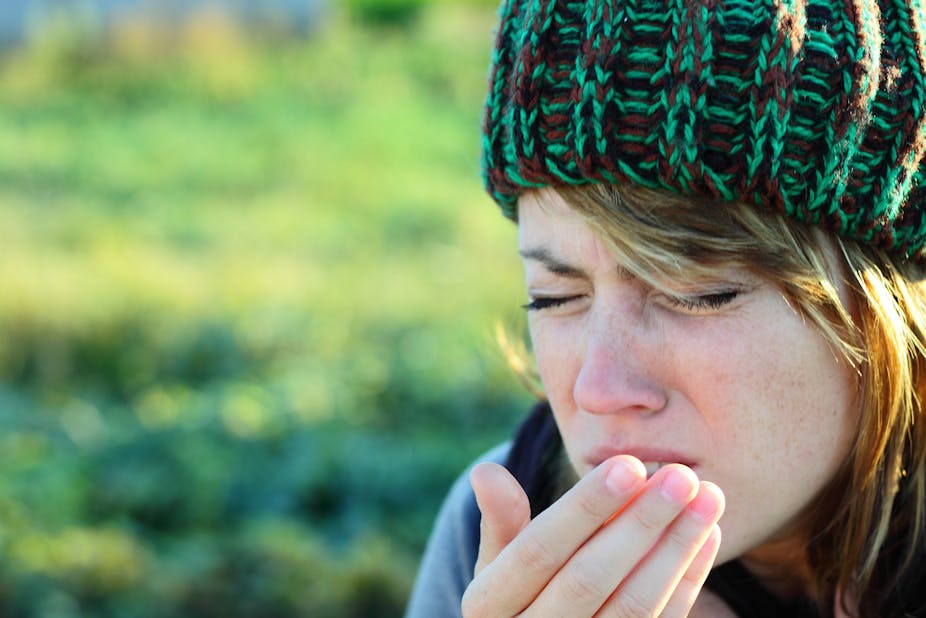We’ve long known that allergies such as eczema, hay fever and asthma are caused by a combination of genetic and environmental factors. But we’ve been unclear about which genes are responsible.
This week, my international research team published a study identifying ten genetic variants that increase a person’s risk of developing allergies. The study, published in Nature Genetics, showed that the more variants a person has, the higher the risk of developing an allergic condition.
How do allergies develop?
In Australia and New Zealand, about 30% of children have an allergy of some type. This occurs because their immune system incorrectly believes a harmless substance – such as dust or pollen – is a threat. These allergy-causing substances are called allergens.
An allergy develops when a particular type of cell from our immune system, B lymphocyte, produces antibodies against an allergen. This process often occurs at a young age and is known as sensitisation, that is, a person becomes sensitive to a particular substance in the environment.
From then on, if the same person is exposed to the same allergen, the antibodies produced by the B cells bind to the allergen. This triggers a series of reactions that culminate with inflammation appearing in the skin (eczema), nose (hay fever) or lungs (asthma). The symptoms of this inflammation are itching, sneezes and wheezes.
One in five Australians and New Zealanders will develop eczema in their lifetime; one in five will suffer with hay fever; and one in ten live with asthma, which can cause serious illness and can be fatal. About 80% of people who have asthma also have hay fever, and many also have eczema.

What role do genes play?
We believe there are many genes that determine who becomes sensitised to an allergen and who doesn’t. If you inherit from your parents enough “faulty versions” of these genes, then not only you are more likely to become sensitised to an allergen as a child, but you will also be at an increased risk of developing eczema, hay fever or asthma later in life.
Our study – the largest of its kind – compared the DNA of 12,000 people with allergies and 20,000 people without allergies. We found 10 regions of the DNA that were different between people with and without allergies.
In one of these regions, for example, people with allergies had the DNA letter T, whereas people without allergies were more likely to have the DNA letter C.
Why is this small difference in the DNA sequence important? Because having a letter T at this particular DNA position means that a nearby gene called STAT6 is a lot more active than if the letter C was present. And if this gene is more active, then the risk of having allergies increases, although we don’t yet fully understand why.
The DNA letter T therefore corresponds to the “faulty version” of the STAT6 gene.
Next steps for research
In this study we have only identified ten regions of the DNA that increase the risk of having allergies, but there are hundreds more yet to be identified. We will conduct larger, similar studies to identify the remaining regions.

For most of these ten regions, we still don’t quite understand how or why the faulty versions of the genes increase the risk of allergies. How do these genes work? Are there specific environmental factors, such as smoking or diet, that turn on the faulty gene? We will be conducting new studies to answer these questions.
Finding the faulty genes involved in the risk of developing allergies is an important first step in better understanding the itching, sneezes and wheezes some of us put up with everyday. It’s also a crucial stepping stone to better targeting these ailments with new treatments.
If your'e over 18, have asthma and would like to participate in Australia’s largest study of asthma genetics, call or 1800 257 179 during business hours or visit this website.

